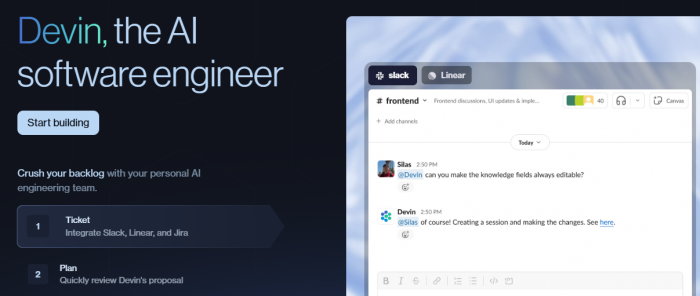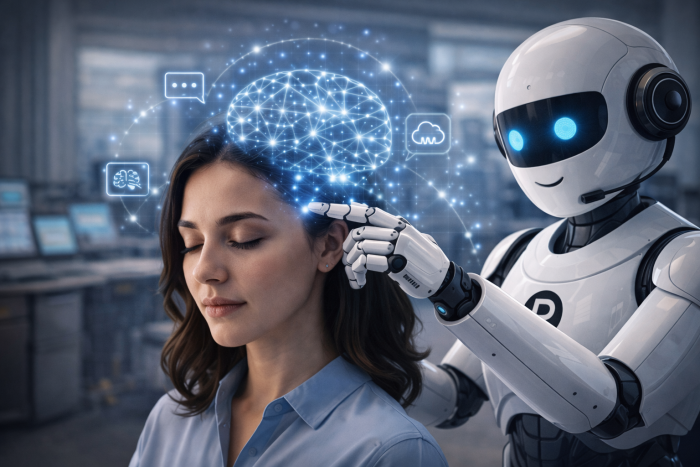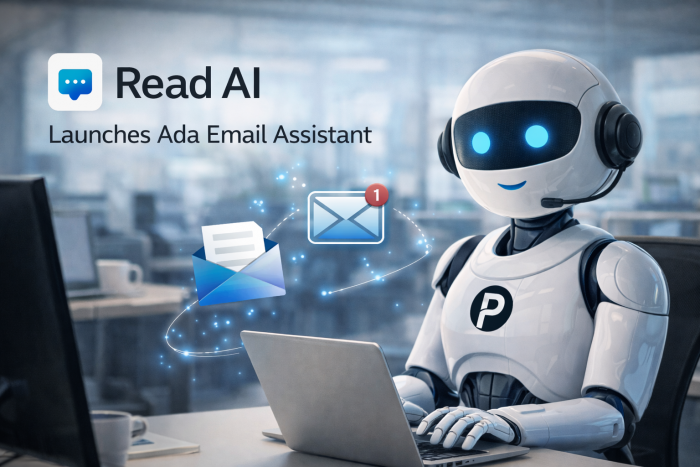On This Page
- The Wall Street Debut of Devin
- Who—or What—is Devin?
- Not Just a Copilot — An Autonomous Engineer
- Why Goldman Sachs Is Betting on It
- Hybrid Teams Are the Future
- The Known Limitations
- Engineering Graduates: Should You Be Worried?
- Context: Wall Street’s AI Arms Race
- Compliance, Auditing, and AI Ethics
- What Comes Next for Devin at Goldman
- Final Thought: A Tipping Point for Agentic AI?
The Wall Street Debut of Devin
Goldman Sachs is making waves by onboarding its most unconventional employee yet — Devin, an AI software engineer built by Cognition. This isn’t your average coding assistant. Devin is an autonomous agent capable of writing, testing, debugging, and deploying full applications with minimal human help.
It’s not replacing interns — it is the intern. And maybe more.
Who—or What—is Devin?

- Released in 2024, Devin was the first AI agent to solve coding tasks end-to-end without human intervention.
- It operates using natural language prompts, autonomously breaking down complex projects into actionable steps.
- The latest version, Devin v2.1, has been trained to adapt to large-scale enterprise codebases — like those used by Goldman Sachs.
Not Just a Copilot — An Autonomous Engineer
Unlike GitHub Copilot or ChatGPT, Devin doesn't just autocomplete or assist — it:
- Architecting software from scratch
- Creates and runs a test case
- Fixes errors in real time
- Deploys complete applications
This is what makes it “agentic AI” — a new frontier where software builds software.
Why Goldman Sachs Is Betting on It
- CFO Marco Argenti confirmed the bank is testing hundreds of Devin instances, with plans to scale to thousands.
- Devin is part of a broader initiative to enhance productivity and reduce grunt work in the firm’s 12,000-strong engineering workforce.
- Previous AI tools at Goldman boosted productivity by 20% — Devin could offer 3–4× improvement, according to internal benchmarks.
Hybrid Teams Are the Future
Despite the buzz, Goldman isn’t going full Skynet.
Devin will work:
- Alongside human engineers
- On hybrid teams where humans guide and QA the AI’s work
- As a productivity booster, not a total replacement
This keeps developers in the loop — for now.
The Known Limitations
Devin isn’t infallible:
- In early tests, it only completed 3 of 20 complex assignments at acceptable quality
- Struggles with edge cases and production-level reliability
- Requires close supervision to avoid silent bugs and security vulnerabilities
So while the potential is big, the risk of “hallucinated code” still lingers.
Engineering Graduates: Should You Be Worried?
The viral Times of India headline calls Devin a "nightmare for new engineers" — but that’s only partly true.
Here’s the nuance:
- Junior coding roles may shrink as AI handles repetitive tasks
- Strategic, architectural, and debugging roles will still require human oversight
The biggest winners? Engineers who learn to leverage agentic AI, not compete with it
Context: Wall Street’s AI Arms Race
Goldman isn’t alone.
Other firms jumping into AI-led workflows include:
- JPMorgan Chase – building its own AI copilots
- Morgan Stanley – integrating OpenAI for wealth advisors
- Citigroup – testing AI for fraud detection and contract reviews
Devin, however, may be the most autonomous agent among them — setting a new bar.
Compliance, Auditing, and AI Ethics
Deploying AI in regulated environments brings added scrutiny:
- Who’s accountable for code written by Devin?
- How do you trace bugs back to AI agents?
- What data does Devin access? Is it secure?
- These aren’t technical questions — they’re legal, ethical, and operational hurdles that Goldman will have to solve before a full rollout.
What Comes Next for Devin at Goldman
- Scaling trials from hundreds to thousands of agents
- Tuning for financial systems and compliance requirements
- Human-AI collaboration training for Goldman’s engineering staff
- Building internal guardrails for explainability and auditability
Final Thought: A Tipping Point for Agentic AI?
This isn’t about automation replacing engineers overnight. It’s about a new class of tools that act rather than assist. Devin represents a shift from passive productivity boosters to active digital teammates — ones that could redefine the nature of work.
Whether Goldman Sachs proves the model or hits scaling snags, the message is clear: Agentic AI is no longer a research toy. It’s showing up to work.
Post Comment
Be the first to post comment!





